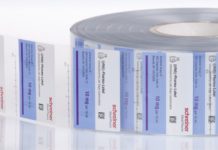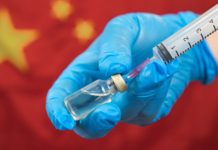The US Food and Drug Administration (FDA) has approved Afinitor® (everolimus) tablets* (approval represents the first major advance for US patients with advanced HR+ breast cancer since aromatase inhibitors were introduced more than 15 years ago) for the treatment of postmenopausal women with advanced hormone receptor-positive, HER2-negative breast cancer (advanced HR+ breast cancer) in combination with exemestane after failure of treatment with letrozole or anastrozole.
“Afinitor is the first and only treatment that boosts the effectiveness of endocrine therapy, significantly extending the time women with advanced breast cancer live without tumor progression,” said Gabriel Hortobagyi, MD, Chair of Breast Medical Oncology, University of Texas MD Anderson Cancer Center. “This approval redefines the treatment and management of advanced hormone receptor-positive breast cancer, offering a critical new option for physicians and patients.”
Each year, an estimated 220,000 women globally will be diagnosed with advanced HR+ breast cancer, the most common form of the disease. In the United States, nearly 40,000 people are expected to be newly diagnosed with advanced breast cancer this year alone. Approximately 70% of all invasive breast cancers are positive for HR expression at the time of diagnosis.
The approval was based on a randomized, double-blind, placebo-controlled, multi-center trial called BOLERO-2 (Breast cancer trials of OraL EveROlimus-2), which evaluated 724 postmenopausal women with advanced HR+ breast cancer with recurrence or progression following prior therapy with letrozole or anastrozole.
This pivotal Phase III study found that treatment with Afinitor plus exemestane more than doubled median progression-free survival (PFS) to 7.8 months, compared to 3.2 months with exemestane alone (hazard ratio=0.45 [95% Cl: 0.38 to 0.54]; p<0.0001) by local investigator assessment. An additional analysis based on an independent central radiology review showed Afinitor plus exemestane extended median PFS to 11.0 months compared to 4.1 months (hazard ratio=0.38 [95% CI: 0.31 to 0.48]; p<0.0001) with exemestane alone. The most common adverse reactions (incidence >= 30%) were stomatitis, infections, rash, fatigue, diarrhea and decreased appetite. The most common grade 3-4 adverse reactions (incidence >= 2%) were stomatitis, infections, hyperglycemia, fatigue, dyspnea, pneumonitis and diarrhea.
“The approval of Afinitor in advanced breast cancer marks a very proud day for the breast cancer community and Novartis. We are bringing a highly-effective treatment to women and their physicians who are in need of new approaches in the battle against this disease,” said Hervé Hoppenot, President, Novartis Oncology. “This milestone is a result of an extensive collaboration with researchers around the world who have helped study Afinitor in advanced breast cancer, as well as the more than 700 women who participated in the trial.”
While endocrine therapy remains the cornerstone of treatment for these women, most will eventually develop treatment resistance. Therapeutic resistance has been associated with overactivation of the PI3K/AKT/mTOR pathway. Afinitor targets the mTOR pathway, which is hyperactivated in many types of cancer cells. mTOR is a protein that acts as an important regulator of tumor cell division, blood vessel growth and cell metabolism.
Marking the fifth indication for Afinitor, this is the first FDA approval for an mTOR inhibitor in the treatment of advanced HR+ breast cancer in the United States. Afinitor is also being studied in HER2-positive breast cancer in two ongoing Phase III trials. On June 21, the Committee for Medicinal Products for Human Use (CHMP) of the European Medicines Agency (EMA) adopted a positive opinion for Afinitor in the HR+/HER2-negative population. Additional regulatory submissions are being reviewed by health authorities worldwide.
About Advanced Breast Cancer
Advanced hormone receptor-positive, HER2-negative breast cancer (advanced HR+ breast cancer) is comprised of metastatic breast cancer (stage IV) and locally advanced breast cancer (stage III). Metastatic breast cancer is the most serious form of the disease and occurs when the cancer has spread to other parts of the body, such as the bones or liver. Locally advanced breast cancer occurs when the cancer has spread to lymph nodes and/or other tissue in the area of the breast, but not to distant sites in the body.
It is estimated that women with metastatic breast cancer have a life expectancy of approximately 18-36 months after diagnosis, and median survival for women with stage III disease is less than five years.
Advanced HR+ breast cancer is characterized by hormone receptor tumors, a group of cancers that express receptors for certain hormones, such as estrogen and progesterone. Cancer cell growth can be driven by these hormones. The presence of estrogen receptor (ER) and/or progesterone receptor (PgR) is one of the most important predictive and prognostic markers in human breast cancers, and is collectively referred to as hormone receptor-positive.
About Afinitor (everolimus)
Afinitor® (everolimus) tablets is approved in more than 80 countries including the United States and throughout the European Union in the oncology settings of advanced renal cell carcinoma following progression on or after vascular endothelial growth factor (VEGF)-targeted therapy, and in the United States and European Union for locally advanced, metastatic or unresectable progressive neuroendocrine tumors of pancreatic origin.
Everolimus is also available from Novartis for use in non-oncology patient populations under the brand names Afinitor® or Votubia®, Certican® and Zortress® and is exclusively licensed to Abbott and sublicensed to Boston Scientific for use in drug-eluting stents.
Indications vary by country and not all indications are available in every country. The safety and efficacy profile of everolimus has not yet been established outside the approved indications. Because of the uncertainty of clinical trials, there is no guarantee that everolimus will become commercially available for additional indications anywhere else in the world.
Afinitor® Important Safety Information
Afinitor®/Votubia® can cause serious side effects including lung or breathing problems, infections, and renal failure, which can lead to death. Mouth ulcers and mouth sores are common side effects. Afinitor/Votubia can affect blood cell counts, kidney and liver function, and blood sugar and cholesterol levels. Afinitor/Votubia may cause fetal harm in pregnant women. Highly effective contraception is recommended for women of child-bearing potential while receiving Afinitor/Votubia and for up to eight weeks after ending treatment. Women taking Afinitor/Votubia should not breast feed.
The most common adverse drug reactions (incidence >= 15%) are mouth ulcers, diarrhea, feeling weak or tired, skin problems (such as rash or acne), infections, nausea, swelling of extremities or other parts of the body, loss of appetite, headache, inflammation of lung tissue, abnormal taste, nose bleeds, inflammation of the lining of the digestive system, weight decreased and vomiting. The most common grade 3-4 adverse drug reactions (incidence >= 2%) are mouth ulcers, feeling tired, low white blood cells (a type of blood cell that fights infection), diarrhea, infections, inflammation of lung tissue, diabetes and amenorrhea. Cases of hepatitis B reactivation and blood clots in the lung and leg have been reported.
About Novartis
Novartis provides innovative healthcare solutions that address the evolving needs of patients and societies. Headquartered in Basel, Switzerland, Novartis offers a diversified portfolio to best meet these needs: innovative medicines, eye care, cost-saving generic pharmaceuticals, preventive vaccines and diagnostic tools, over-the-counter and animal health products. Novartis is the only global company with leading positions in these areas. In 2011, the Group achieved net sales of USD 58.6 billion, while approximately USD 9.6 billion (USD 9.2 billion excluding impairment and amortization charges) was invested in R&D throughout the Group. Novartis Group companies employ approximately 126,000 full-time-equivalent associates and operate in more than 140 countries around the world.





















